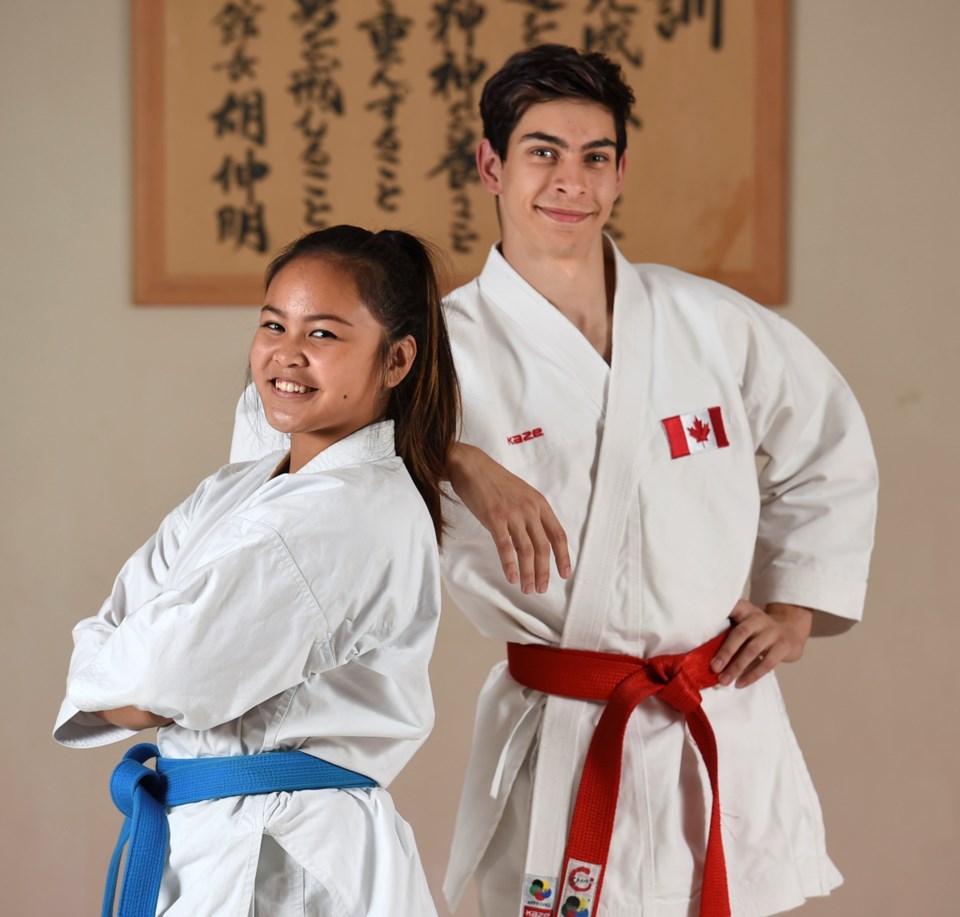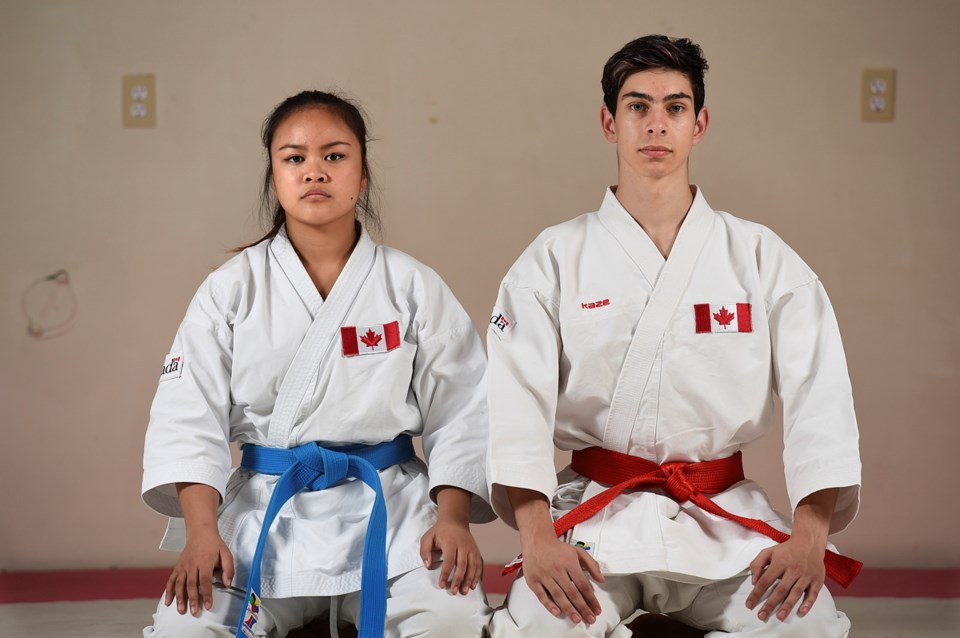At five-feet-one “on a good day,” Shalene Lee finds the advantages of being the smaller fighter on the mat.
A karate black belt by the age of 10, the Churchill graduate can repeatedly plant head kicks on taller opponents and will take those unexpected tactics to the World Junior Karate Championships in Indonesia next month.
“People tend to underestimate me and my speed,” she said. “But I come in really quick.”
When she competes for Canada against the best in the world, Lee won’t be alone in representing one of the most successful dojos in the country, Kimeru Shotokan and sensei Brian James. She will travel with her teammate and good friend Khyber Barnett, the Karate Canada junior athlete male of the year who holds the highest national rank in kata, a competitive but non-combat series of karate postures. Kata means "form."

The pair have been friends since early childhood when they both signed up for karate through the YMCA. They followed James and his son Reuben, also a world championship competitor and high-ranking international judge, when the dojo branched out and eventually established an independent location on South West Marine. Since then, Kimeru Shotokan has celebrated more national champions than any other dojo in Canada. Barnett and Lee have both claimed national titles and were selected for the world championship.
“I wanted to try it out because it seemed cool,” said Lee. “My sensei pulled me out and said he thought I had a lot of potential. At six years old I probably didn’t even know what potential meant.
Combative or non-contact, or the martial art has done more for Lee and Barnett than earn them national recognition and an international platform. Karate has helped both 17 year olds develop self-esteem and nurture their mental resilience.
“I was bullied a lot and now I’m respected in my school,” said Barnett, who started at five and committed to the discipline long before he had competitive success because he liked the practise.
“I didn’t start winning until I was about 10. I had five years where I had just nothing. Most people, I guess they would have quit if they didn’t get anything out of it. I was trained to keep going. It’s part of the karate mentality to keep going even when you’re down, broken and just not going anymore.”
Being a smaller kid in elementary school may have made him an easy target but for still-inexplicable reasons he drew the attention of mean-spirited antagonists. He persevered, committed to his training and sought help from teachers.
Years later, he encouraged his friend and teammate to find the strength within her, too.
“I remember at nationals I was really doubting myself,” said Lee about the January competition held in Richmond. “I was overthinking myself, I was going crazy thinking, ‘My god, I’m not ready for this.’ He helped me calm down. He talked me out of it.”
He told her, “I know you’ve got this because you always do.”
Lee was named the junior female athlete of the year. Barnett won the junior male equivalent.
“He’s like a brother,” she said.
There is more on the line at the world championship than pride and placement, both athletes agreed. Karate is one of several sports in contention for inclusion as an Olympic sport at the 2020 Tokyo Games.
“I’d really like it to be more mainstream,” Barnett said of karate.
The Olympics would also mean a new level of opportunity for an already successful Vancouver dojo.
Twitter and Instagram: @MHStewart



